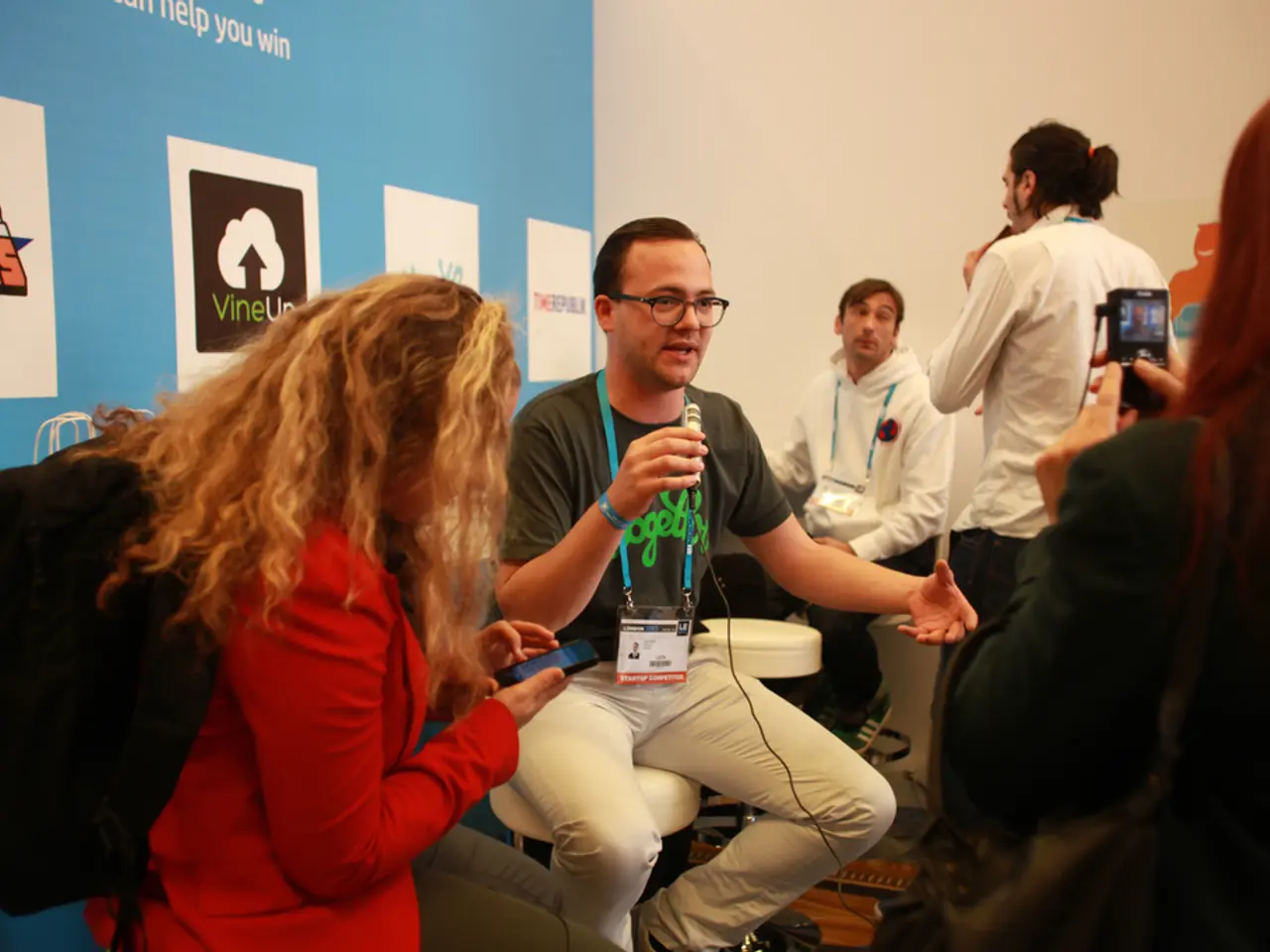Federal administration initiates a rapid cybersecurity recruitment drive aimed at filling around half a million vacancies in the field.
In a bid to bolster the nation's resilience against malicious cyberattacks, the White House unveiled a national cyber workforce and education strategy last July. The strategy includes initiatives such as Service for America, a recruitment and hiring push for cybersecurity, technology, and artificial intelligence jobs.
According to National Cyber Director Harry Coker Jr., many Americans are unaware of the availability of cyber careers. Coker emphasised that people of all backgrounds can find well-paying jobs in cybersecurity, challenging the perception that a computer science degree and deeply technical background are required for a cyber job.
One of the key initiatives under Service for America is connecting a new generation of prospective candidates into cybersecurity positions. The program aims to bridge the skills gap in the industry by offering training and apprenticeships, focusing on individual aptitude rather than educational background.
Similar initiatives, like the Cybersecurity Workforce Development and Training (CWD) Program, emphasise the importance of hands-on training and cooperative agreements with community-based organisations to help individuals develop the necessary skills for entry-level positions in cybersecurity.
The AI Guide for Government, another initiative, highlights the need for coordinating with AI practitioners to evaluate candidates' AI capabilities, ensuring qualified candidates can contribute to agency missions. It also underscores the importance of a robust technological infrastructure to support AI development, which could indirectly benefit individuals looking to transition into AI roles by providing opportunities for skill development.
The Department of Homeland Security offers various cybersecurity positions, which could be attractive to those transitioning into the field. Working in such roles often involves continuous learning and skill development, which can help individuals build a career in cybersecurity or technology.
In addition, certificate programs in IT and AI, such as those offered by industry leaders like Amazon and IBM, can provide essential skills for transitioning into roles in these fields. These programs focus on practical skills, which can be beneficial for individuals without traditional qualifications.
Last month, Coker visited the College of Southern Nevada to promote efforts to train more students in cybersecurity. The White House has also been promoting efforts to connect a new generation of prospective candidates into cybersecurity positions, as part of a major effort to close the skills gap in the industry.
To support these initiatives, the White House has posted links to job recruitment fairs and related programs taking place through mid-October. Service for America targets job candidates without traditional qualifications, such as computer science or engineering backgrounds, aiming to connect Americans with about 500,000 available cybersecurity jobs across the country.
The national cybersecurity strategy includes a push for additional hiring, with the aim of building up the nation's resilience to prevent and better withstand malicious cyberattacks. By offering training, apprenticeships, and job opportunities, the White House is working to ensure that everyone, regardless of background, has a chance to contribute to this vital effort.
- The national cyber workforce and education strategy, unveiled by the White House last July, includes initiatives such as Service for America, which focuses on recruiting and hiring for cybersecurity, technology, and artificial intelligence jobs, despite many Americans being unaware of the availability of such careers.
- Service for America plays a significant role in the strategy, connecting a new generation of prospective candidates into cybersecurity positions and bridging the skills gap in the industry by offering training and apprenticeships based on individual aptitude rather than educational background.
- The Cybersecurity Workforce Development and Training (CWD) Program, similar to Service for America, emphasizes hands-on training and cooperative agreements with community-based organizations to help individuals develop necessary skills for entry-level positions in cybersecurity, setting the ground for continuous learning and self-development in this field.




